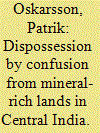|
|
|
Sort Order |
|
|
|
Items / Page
|
|
|
|
|
|
|
| Srl | Item |
| 1 |
ID:
149128


|
|
|
|
|
| Summary/Abstract |
Scholars, observing clustering in transitions to democracy, argue that democratization diffuses across borders as citizens in autocracies demand the same reforms they witness in neighboring states. We disagree. This article demonstrates that diffusion plays only a highly conditional role in democratization. We advance and test an alternative two-step theory of clustered democratization: (1) economic and international political shocks, which are clustered spatially and temporally, induce the breakdown of authoritarian regimes; then (2) democratic diffusion, in turn, influences whether a fallen dictatorship will be replaced by a democracy or a new autocracy. Diffusion, despite playing an important role, is insufficient to explain the clustering of transitions. Using data on 125 autocracies from 1875 to 2004, we show that economic crises trigger authoritarian breakdowns, while diffusion influences whether the new regime is democratic or authoritarian.
|
|
|
|
|
|
|
|
|
|
|
|
|
|
|
|
| 2 |
ID:
121111


|
|
|
|
|
| Publication |
2013.
|
| Summary/Abstract |
Bauxite mineral projects in central India have in recent years generated conflicts over both the physical environment and equitable development for very vulnerable people. In one such project, a joint venture between the state government of Andhra Pradesh and a private investor, attempts are currently being made to open up land constitutionally reserved for India's Scheduled Tribes. The final outcome, though still uncertain, depends not only on the relative material resources of the opposing parties, but on a drawn-out process of contestation where the discursive resistance to tribal land dispossession has strong historical roots and many active supporters. Thus, for the project's promoters, their advantage rests on their ability to create confusion via superior access to, and control over, information, rather than relying on their direct authority.
|
|
|
|
|
|
|
|
|
|
|
|
|
|
|
|
| 3 |
ID:
144833


|
|
|
|
|
| Summary/Abstract |
Critics concerned with the effect of public utility companies' market practices have primarily focused on issues of disconnection and inequality. This article goes further, challenging the very premise on which the model is based: the principle of individual choice. The article focuses on the French gas, electricity and telephone sectors, developing two points. The first is the declining trust in public utility companies and a certain choice-averseness. The second point addresses the experience of the ‘customer’, pressured to make the ‘right’ choice through manipulation and misinformation on the part of competing suppliers. Thus, instead of ‘active customers’ directing markets through their ‘choices’, what is seen is the disaffection or weariness of customers in the face of what they perceive as an unfair situation.
|
|
|
|
|
|
|
|
|
|
|
|
|
|
|
|
|
|
|
|
|